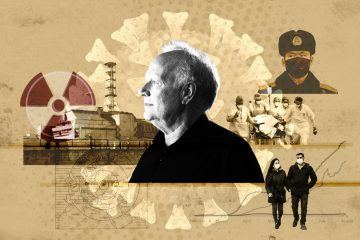 Adam Tooze in Foreign Policy:
Adam Tooze in Foreign Policy:
We all know the Chernobyl script. A badly designed reactor suffered a meltdown. The decrepit Soviet regime tried to hide the disaster. Millions of citizens were put at risk. And the truth came out. The regime paid the price. Its legitimacy was in tatters. Collapse followed.
For liberals it is a pleasing morality tale. Dictatorship fails when faced with the challenges of modernity. Sunlight is the best disinfectant.
When COVID-19 struck, we wondered whether it might be Chinese President Xi Jinping’s Chernobyl. But after initial prevarication driven by Wuhan’s local politics, China’s national leadership reasserted its grip. The worst moment was Feb. 7, when hundreds of millions of Chinese took to the Internet to protest the treatment of whistleblowing doctor Li Wenliang, who had died of the disease. Since then Beijing has taken control, both of the disease and the media narrative. Far from being a perestroika moment, the noose of party discipline and censorship has tightened.
By the spring it was White House staffers who were likely watching the HBO miniseries Chernobyl and wondering about their own boss. Lately, the historian Harold James has asked whether the United States is living through its late-Soviet moment, with COVID-19 as President Donald Trump’s terminal crisis. But if that turns out to be the case, it will not be because of a botched cover-up; Americans are living neither in late-Soviet Ukraine nor in the era of Watergate, when a sordid exposé could sink a president. Of course, Trump was culpably irresponsible in making light of the disease. But he did so in the full glare of TV cameras. The president reveled in flouting the recommendations of eggheaded public health experts, correctly calculating that a large swath of his base was not concerned with conventional norms of truth or reason.
More here.
